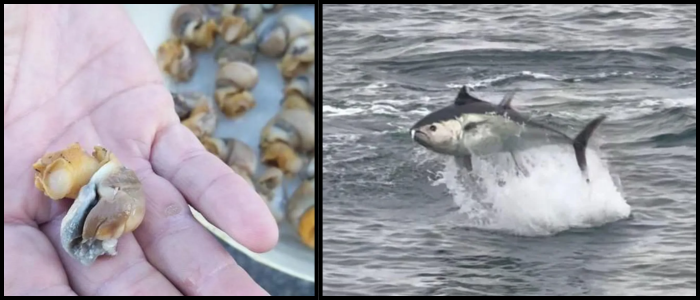This warming has led to changes in marine ecosystems, with several new species arriving in UK waters and cold-adapted species in decline. New to the region: octopus, bluefin tuna, mauve stinger jellyfish, salps and blooms of unusual marine organisms. Soaring sea temperatures, in addition to better species control, have seen a boom in bluefin tuna figures off the coasts of south-west England.
Changing Ecosystems and Fishing Challenges
A few residents and divers have reported extraordinary encounters with bizarre sea creatures. Huge shoals of bluefin reminiscent of a feeding frenzy, but also snorkellers swimming through luminescent lines of salps off the coast of Cornwall. The kinds of changes are recognizable as signs of distress by researchers.
However, the warming water resulting from climate change has put cold-water species, like cod, wolf-fish and whelks, at risk – as have past orders of overfishing. Marine heatwave conditions — prolonged periods of unusually high temperatures — have reigned in the UK for much of 2025, mirroring similar trends in 2023 and 2024. During a heatwave in 2022, the whelk, which are important for some fishing businesses, experienced heavy losses. Dogger Bank suffered huge decreases because of heatwaves, putting monetary pressure on beachfront networks.
Long-Term Climate Impact
They have warned that these warm temperatures are not just a one-off occurrence but part of a trend spanning many decades, with heatwaves now happening more frequently and with higher intensity. This is because the world's oceans have taken up approximately 90% of the excess heat trapped by greenhouse gas emissions, increasing the chances of marine heatwaves. The warmer seas would also lessen how much carbon dioxide the ocean can absorb, which could in turn speed up global warming.
Because species ranges will be moving, the fish humans target and eat over the next few decades need to change. The researchers say this will have significant impacts on the country's marine life that will evolve as the planet warms, reshaping both ecosystems and coastal livelihoods.
Entertainment

Warm Seas Bring New Species to UK Waters

Britain's coastal waters have seen their highest temperatures ever, leading to disruptions of marine life and harming fishing communities. January--July data shows SSTs more than 0.2°C above any prior year back to 1980. That increase is minimal in absolute terms, but it provides clear evidence of a warming trend that has occurred over recent decades and which is driven mostly by human-made climate change.















